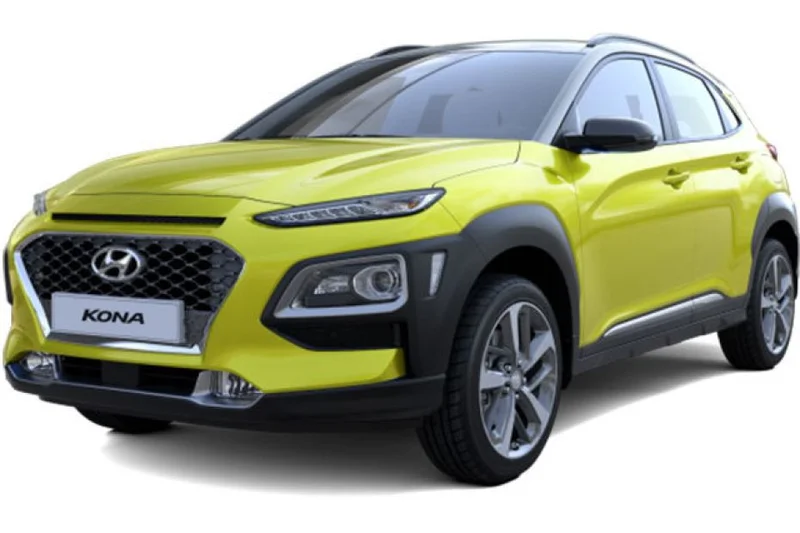Hyundai's Identity Crisis: G20 Limos vs. Exploited Labor
The South Korean automaker Hyundai is facing a multi-faceted brand identity crisis. On one hand, it's positioning itself as a global player, providing official vehicles for the G20 Leaders' Summit in Johannesburg. On the other, it's battling allegations of severe labor exploitation in its supply chains, including child labor, prison labor, and the exploitation of immigrant workers. Add to this the recent revelation of paywalled repairs, and a clear pattern emerges.
The G20 Facade vs. The Factory Floor
Hyundai's participation in the G20 summit is a calculated move. Providing 30 STARIA MPVs (multi-purpose vehicles) to transport delegation staff projects an image of sophistication and global responsibility. The summit itself, focused on "Solidarity, Equality, Sustainability," aligns with the values Hyundai wants to be associated with. But does this image hold up under scrutiny? Hyundai Motor to Provide Official Vehicles for G20 Leaders’ Summit in Johannesburg, South Africa
Jobs to Move America filed a lawsuit alleging Hyundai and Kia (its affiliate) are using cheap labor in their supply chains, specifically in Alabama and Georgia. The lawsuit claims these companies are exploiting children (some as young as 13), immigrants, and even inmates to cut costs. If true, this directly contradicts the "Equality" and "Sustainability" themes promoted at the G20 summit. The lawsuit seeks an independent audit of Hyundai's supply chain in these states.
One former Hyundai employee, Mark Miller, described the conditions at a plant in Montgomery, Alabama as unsafe, with a complete lack of training. Rosalinda Soriano-Torres, another former employee, alleged that immigrants were paid less than U.S. citizens for the same work. These are serious allegations, and if proven true, they could have significant consequences for Hyundai's contracts with public agencies, particularly in California. State Senator Maria Elena Durazo has already raised concerns about the state's purchasing decisions.
Paywalled Repairs and Right-to-Repair
Adding another layer to this PR disaster is the issue of paywalled repairs. A Reddit user, [SoultronicPear], discovered that changing brake pads on their Ioniq 5N (a high-performance EV) required a subscription and specialized tools. Despite paying for the $60/week NASTF subscription and a $2,000 interface tool, their account was suspended because it wasn't intended for non-"service professionals." After multiple attempts, a Harbor Freight T7 bidirectional scan tool was able to retract the parking brake, but not without triggering error codes.

This isn't just an inconvenience for DIY mechanics; it's a direct attack on the "Right to Repair" movement and a blatant attempt to extract revenue from basic maintenance. While EVs are supposed to simplify repairs due to regenerative braking reducing the need for brake pad replacements, Hyundai is actively making it more difficult.
This creates a discrepancy. Hyundai is embracing electrification (the Ioniq line, for example) while simultaneously implementing policies that alienate consumers and stifle independent repair shops. The company's stated commitment to sustainability rings hollow when it actively prevents consumers from maintaining their vehicles.
What's the long-term strategy here? Is Hyundai betting that the revenue from subscriptions and proprietary tools will outweigh the negative publicity and potential backlash from consumers and regulators? And what happens when these error codes triggered by third-party tools void warranties or create safety risks?
Racing Victories: A Distraction?
Hyundai's racing division, Hyundai Motorsport Customer Racing, had a successful year, culminating in a 1-2 finish at the Kumho FIA TCR World Tour in Macau. Nestor Girolami secured a win, and Josh Buchan took another victory in Race 2. Mikel Azcona finished second in Race 1.
While these victories are undoubtedly positive for the brand, they also serve as a distraction from the more serious issues plaguing the company. Celebrating racing triumphs while facing allegations of labor exploitation and anti-consumer repair practices creates a jarring disconnect. The company is showcasing performance on the track while potentially compromising ethics in the factory.
I've looked at hundreds of these corporate PR releases, and the timing of this racing victory announcement is, shall we say, unusual. It's a classic tactic: bury bad news under a pile of good news. The question is, will it work?
Smoke and Mirrors
Hyundai wants to be seen as a global leader in automotive technology and sustainability, but the data paints a different picture. The company is facing serious allegations of labor exploitation, engaging in anti-consumer repair practices, and prioritizing profit over ethical conduct. The G20 limousines are just a shiny facade.
